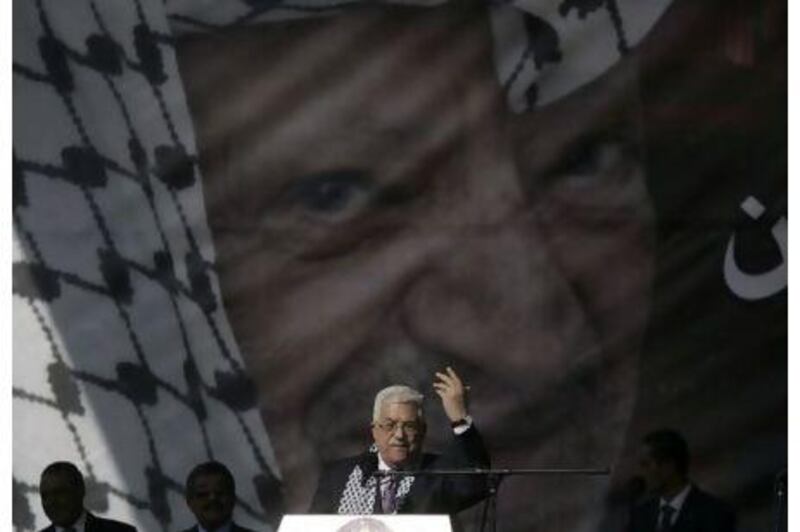JERUSALEM // As recently as a year ago, Israeli officials were warning the Obama administration that Mahmoud Abbas, the Palestinian Authority (PA) president, was a perilously weakened leader who would "not survive politically" beyond 2011.
The gloomy assessment of his hold on power is just one of numerous, potentially embarrassing and uncomfortable insights revealed by a trove of sensitive US diplomatic cables disclosed by WikiLeaks on Sunday.
Israel's perceptions of the Palestinian leadership and the divisions within it are, of course, well-known. But the newly divulged documents provide a telling look into closed-door diplomatic discussions between Israeli officials and their American allies over the last several years, including candid remarks about how to strengthen Mr Abbas against threats by his rivals in Hamas and discontent among his own allies.
In a cable dated November 11, 2009, the head of the political-military bureau at Israel's ministry of defence, Amos Gilad, was said to call for an immediate resumption of Israeli-Palestinian peace talks in front of a visiting US assistant secretary of defence.
"It was widely agreed that President Abbas is currently in a weakened political state, and Israeli officials generally cast a dour assessment of Abbas's future," the cable reported.
"In one exchange, Amos Gilad stated his opinion that Abbas will not survive politically past the year 2011," it said, adding that Mr Gilad's suggestion for helping the Palestinian leader was "that Israeli-Palestinian peace discussions need to be resumed immediately …"
Yet, later in the meeting, the cable concluded that Mr Gilad expressed the opinion that "Israel has little faith in the Palestinian negotiating team".
An official in Fatah, who spoke on condition of anonymity, disputed claims that Mr Abbas was, in fact, a weakened leader.
"The Israeli government has been engaged in an orchestrated campaign to delegitimise the Palestinian leadership, to delegitimise the Palestinian national movement, and the PA, and this is part and parcel of that campaign," he said.
Most of the 19 disclosed documents from the US Embassy in Tel Aviv and reporting on meetings with Israeli officials highlight their tepid regard for the West Bank's leadership.
But in December of last year, Israel's prime minister, Benjamin Netanyahu, appeared enthusiastic about resuming direct negotiations with Mr Abbas.
According to the cable, dated December 23, 2009, he also said the Palestinian leader's increasingly proficient security forces, trained and equipped by the US, were "doing a good job" at maintaining security in the West Bank.
Yet, in a harbinger of the disagreements that have now deadlocked Israeli-Palestinian negotiations, the Israeli leader is portrayed as maintaining an unbending stance on so-called final status issues.
During an April 2007 meeting in the Israeli parliament with a US congressman, Mr Netanyahu, then the leader of the opposition, said he would not agree to Israel's withdrawal to its 1967 borders, as Palestinians demand, since they were "indefensible".
He also is reported to have stated that the Palestinians would only have a partner in peace negotiations if they dropped their key demand of right of return for refugees.





